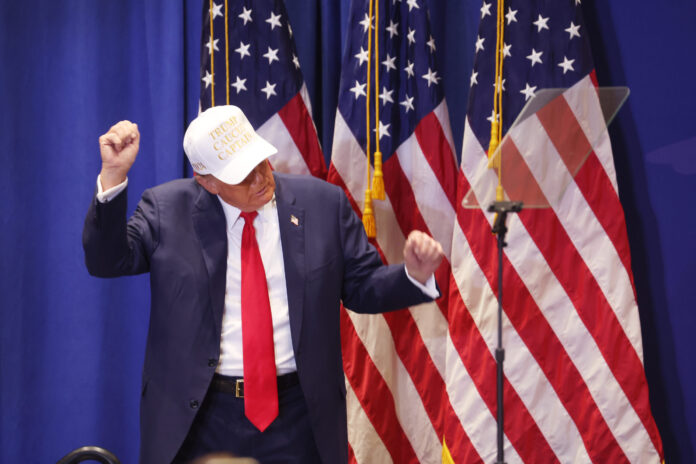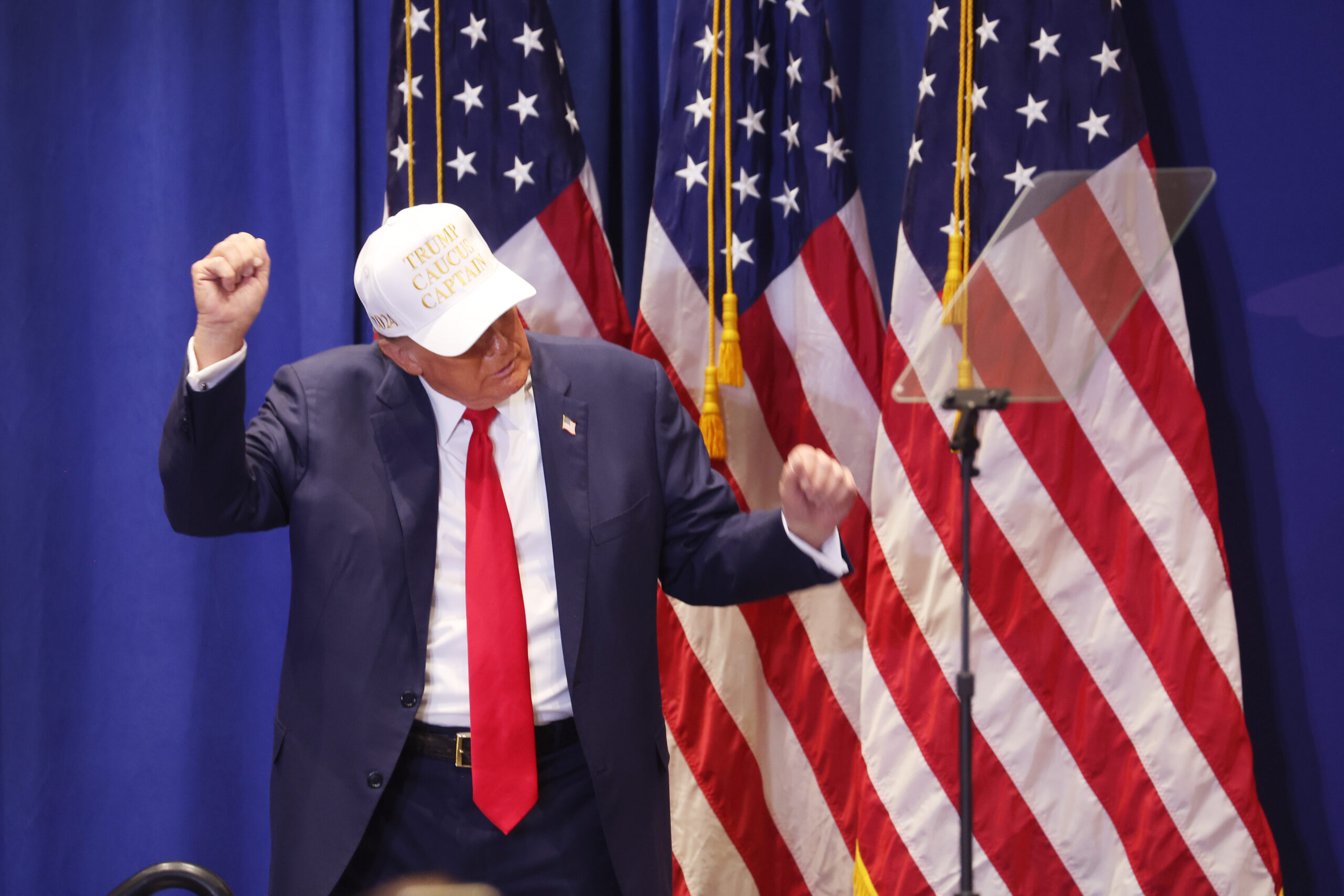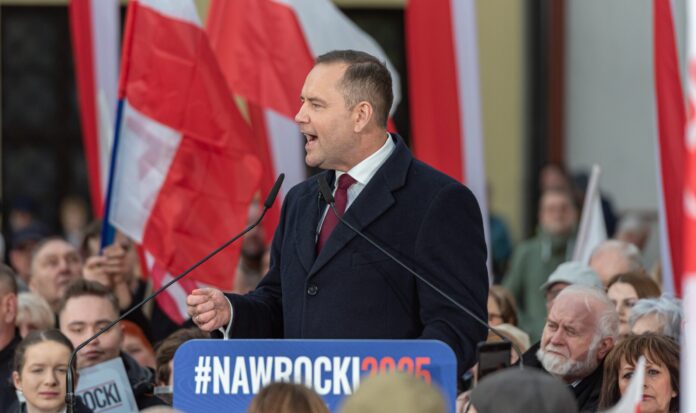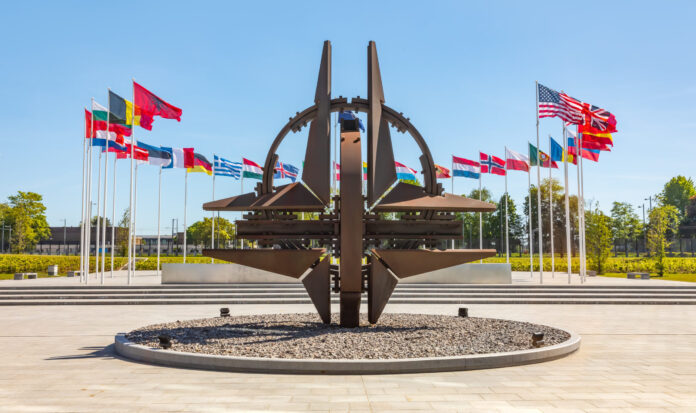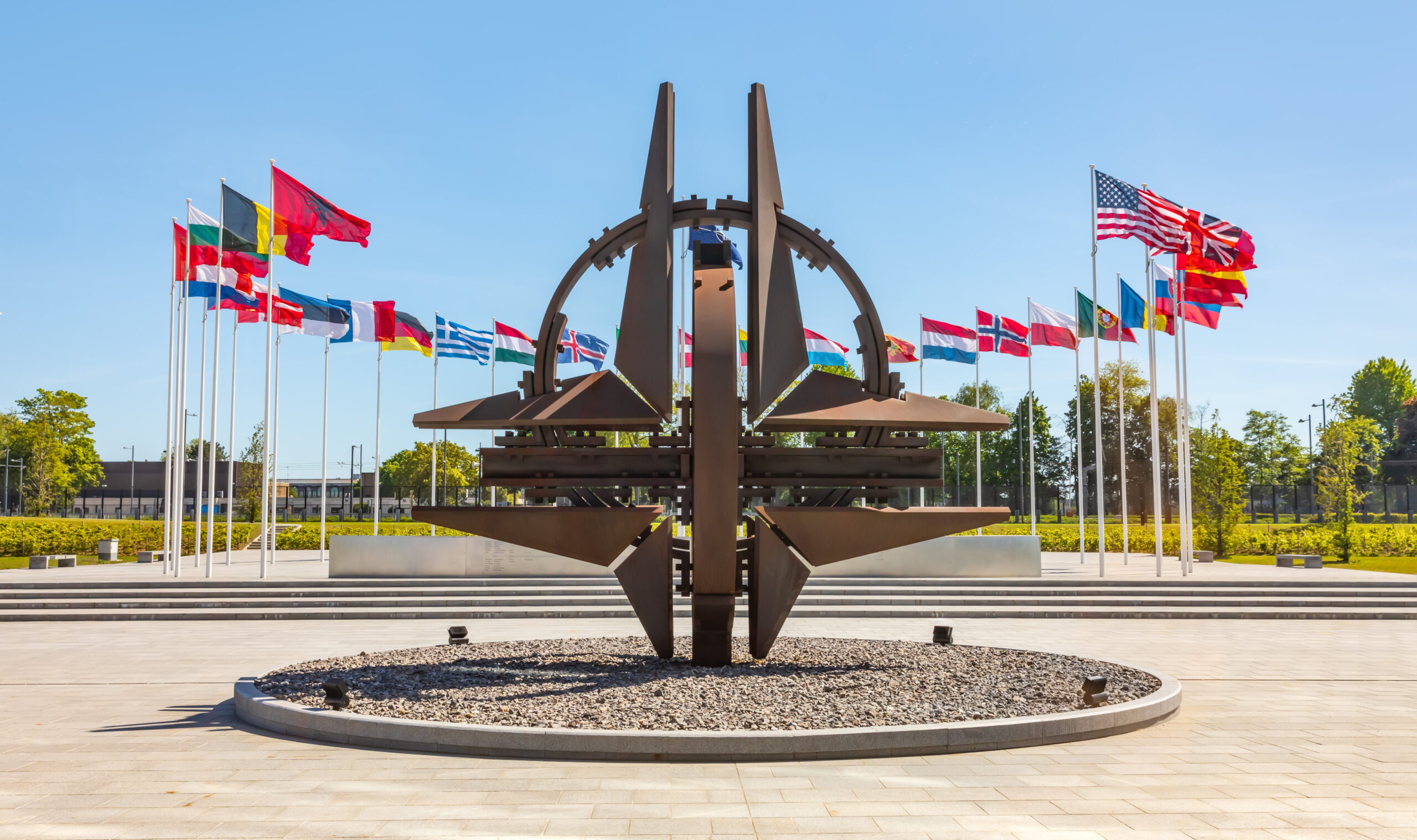Foreign Affairs
Trump’s Baffling Two-Step on Iran
The president is probably concealing his diplomatic bottom line to ward off pro-Israel hawks.
A U.S.-proposed nuclear deal given to Tehran on Saturday allows it to continue enriching uranium to low levels on Iranian soil, Axios reported Monday morning.
That would permit Tehran to produce nuclear fuel suitable for civilian energy purposes, but not for nuclear weapons. Since Tehran would oppose any agreement that blocked its ability to enrich uranium, proponents of U.S.–Iran diplomacy were thrilled by the news—but not for long.
“WE WILL NOT ALLOW ANY ENRICHMENT OF URANIUM!” wrote President Donald Trump on social media Monday evening.
What’s going on here?
It’s not entirely clear, and that’s likely by design. Throughout Trump’s second term, his administration has sent mixed signals about its demands, suggesting a deliberate pattern of obfuscation and contradiction. Sometimes Trump officials—and Trump himself—indicate that low levels of enrichment will be allowed under a deal; other times they emphatically deny that to be the case.
The question is why.
My best guess: The administration is publicly misrepresenting what kind of Iran deal it would be willing to strike. Notably, that involves exaggerating demands not merely for the purpose of gaining leverage vis-à-vis Iran, though the administration has been doing that as well. Rather, the duplicity is primarily meant to stave off criticism from pro-Israel forces who desire the full dismantlement of Iran’s nuclear energy program—and who mount a fierce resistance after any suggestion that Tehran can continue enriching uranium.
Experts I reached out to this week see things much the same. Trita Parsi of the Quincy Institute told me in an email that the confusing public rhetoric, though flawed, offers the administration two benefits. “On the one hand, it delays the onslaught of attacks from pro-Israel elements who will not be satisfied with any deal with Iran,” Parsi said. “On the other hand, it is consistent with Trump’s negotiation style to take exaggerated maximalist positions at the outset of a negotiation in order to elicit concessions from the other side.”
Of course, there are other ways to account for the latest apparent rendition of Trump’s “no enrichment” two-step.
One possibility: Axios simply got the story wrong. It wouldn’t be the first time.
Indeed, it wouldn’t have been the first time even this week. The reporter, Barak Ravid, one day earlier wrote that Ukraine had pre-notified the White House of a drone attack deep inside Russia. Within hours after publication, “did notify” became “did not notify.” Obviously, one version of that story must be wrong. Maybe Ravid’s newer story is as well.
Still, Ravid is normally a reliable journalist known for bringing the goods on exclusive scoops, sometimes to the bewilderment of political leaders. “You know what’s going on,” Ukraine’s President Volodymyr Zelensky told Ravid in February. “Where do you get this information?”
In the case of Ravid’s report on Iran diplomacy, his information came from “two sources with direct knowledge—one of whom provided a point-by-point breakdown.” And this report, unlike the one on Ukraine’s drone attack, hasn’t been corrected.
On Tuesday, other outlets corroborated Ravid’s claims. The New York Times had reported on Saturday that the U.S.-proposed agreement—the first formal one delivered to Tehran—forbade uranium enrichment. But by Tuesday, the Gray Lady had gathered new information. Times reporters Farnaz Fassihi, David Sanger, and Jonathan Swan wrote,
The Trump administration is proposing an arrangement that would allow Iran to continue enriching uranium at low levels while the United States and other countries work out a more detailed plan intended to block Iran’s path to a nuclear weapon but give it access to fuel for new nuclear power plants.
As the authors note, Trump’s Monday night denial that the proposal allowed Iran to enrich any uranium may have pertained to the eventual, comprehensive deal, not to the interim arrangement. So, not quite a lie, but an evasive truth.
And maybe even more evasive than it seems. On X, I asked Greg Priddy, Senior Fellow for the Middle East at the Center for the National Interest, whether the administration’s inconsistency on enrichment resulted from White House infighting, simple incoherence, or a deliberate strategy to ward off Iran hawks.
“We don’t know, but I am beginning to think the latter,” Priddy said. “And we may end up with an ‘interim’ agreement which effectively becomes the end state because once the initial restrictions are in place, no U.S. pres is going to want to fight a war over transparent LEU [Low Enriched Uranium] enrichment.”
Iran hawks too were skeptical that the proposed arrangement would actually lead to a suspension of enrichment on Iranian soil. Mark Dubowitz of the Foundation for Defense of Democracies wrote on X that Supreme Leader Ayatollah Khamenei “may love this deal” because it would buy Tehran time to build nuclear weapons.
Dubowitz’s comment was typical of how Iran hawks have reacted to signs that the White House will make concessions on enrichment. In April, after Special Envoy Steve Witkoff suggested on Fox News that Trump was seeking to limit but not eliminate Iran’s enrichment program, anti-Iranian hardliners in America and Israel pounced. Ellie Geranmayeh of the European Council on Foreign Relations told me in an email, “This backlash in my view cornered Witkoff to walk back.” The next day, Witkoff reversed course. “Iran must stop and eliminate its nuclear enrichment and weaponization program,” he insisted.
Judging by this week’s reports, the administration has remained more flexible on the matter than Witkoff’s emphatic statement had suggested.
Unfortunately, to Tehran this flexibility looks like continual goalpost-shifting and chaotic diplomacy. While the Trump administration’s uncompromising public statements seem primarily intended for a domestic audience, Iranian leaders hear them as well, and they react accordingly, as Foreign Minister Seyed Abbas Araghchi did on Wednesday. “To reiterate: No enrichment, no deal,” Araghchi wrote on X. “No nuclear weapons, we have a deal.”
Such responses by Iranian officials point to a flaw in the administration’s rhetorical strategy. “Trump can’t confuse his domestic critics without also confusing the Iranians and leaving them doubting the reliability of a deal with Trump,” Parsi told me. “Much of this could be avoided if Trump’s style didn’t involve a significant public negotiation component.”
Hardline public rhetoric is prompting pushback not only from Tehran, but also from leading Democrats—though not for the reasons you might expect. Sen. Chuck Schumer (D-NY), in a video statement released on Monday, lambasted the administration’s behind-the-scenes dealmaking. “What kind of bull is this?” Schumer asked. “They’re going to sound tough in public, and then have a side deal that lets Iran get away with everything?”
Given the problems the confusing rhetoric is causing, a more forthright approach would be worthwhile, assuming that Trump, as he claims, really does want to make a deal, not a war, with Iran. With the Russia–Ukraine war raging and Israel escalating its assault on Gaza, getting an Iran nuclear deal is the low-hanging fruit among the president’s foreign policy priorities. Trump said in his inaugural address that he intends to govern as a “peacemaker and unifier.” At this stage, U.S.–Iran diplomacy seems the clearest path to fulfilling that promise.
Moreover, a nuclear deal would, through sanctions relief, bring significant economic benefits not only to Iran, but to America. A new research paper from the Quincy Institute—an advance copy of which was made available to The American Conservative—quantifies just how large those benefits could be.
In “The Economic Dimensions of a Better Iran Deal,” Hadi Kahalzadeh of Brandeis University writes that, as part of a nuclear deal, Trump should authorize up to $25 billion in annual U.S. exports. Kahalzadeh estimates that the move, by boosting domestic manufacturing, would create 190,000 U.S. jobs annually by 2040. He recommends as well that Trump allow U.S.-owned foreign subsidiaries to access Iranian investment opportunities, totaling up to $4 trillion.
The prospect of such an economic windfall no doubt appeals to the businessman-turned-president Trump, but attaining it would require significant sanctions relief. Would Trump actually be willing to so blatantly defy the Iran hawks, who favor a “maximum pressure” campaign to destroy Iran’s economy? This week brought signs that that answer is yes. On Sunday, the Wall Street Journal reported, to the dismay of its editorial board, that the White House had directed executive agencies to halt new sanctions activity toward Iran.
Clearly, Trump is serious about reaching a mutually beneficial agreement with Tehran, even though that means inciting backlash from Iran hawks. Now, to seal the deal, Trump should go beyond the “no enrichment” two-step, and he should abandon any pretense that Tehran will agree to ever cease enriching uranium. According to Geranmayeh, “Iran is highly unlikely to accept a total ban on enrichment within Iranian territory even if it’s at a future long term date.”
As negotiations advance, the White House should either stick to issuing (reasonable) demands behind closed doors, or it should go public with what seem to be the actual diplomatic goals: avoiding war by lifting sanctions in exchange for limits, not a ban, on enrichment. That is what the American people want. And it’s what President Trump, with wise diplomacy, can achieve.
The post Trump’s Baffling Two-Step on Iran appeared first on The American Conservative.


